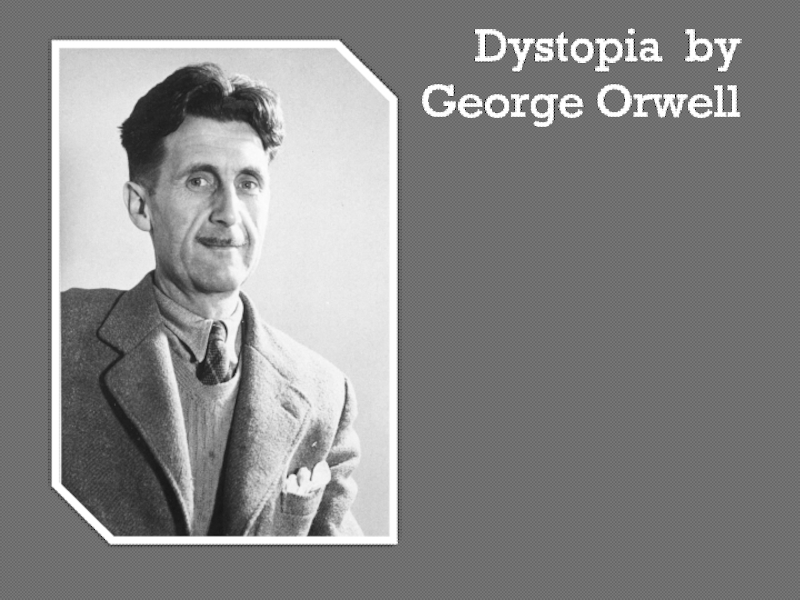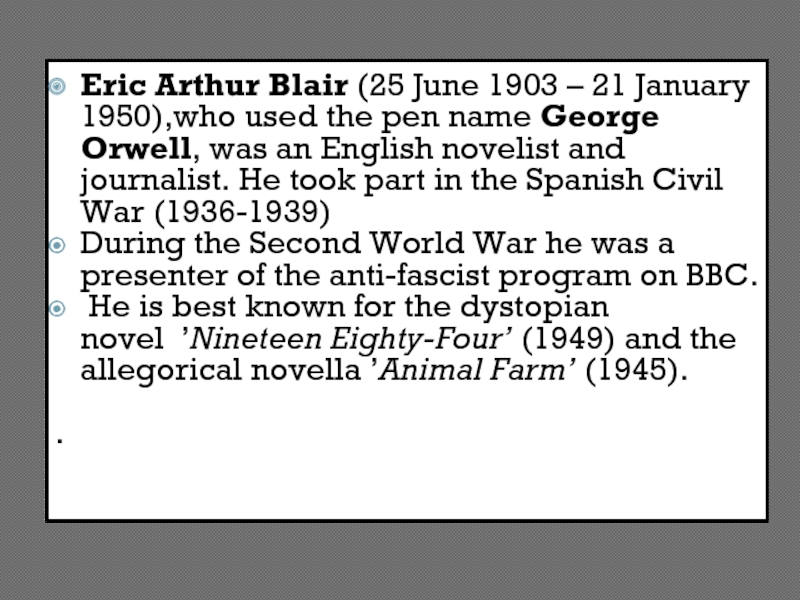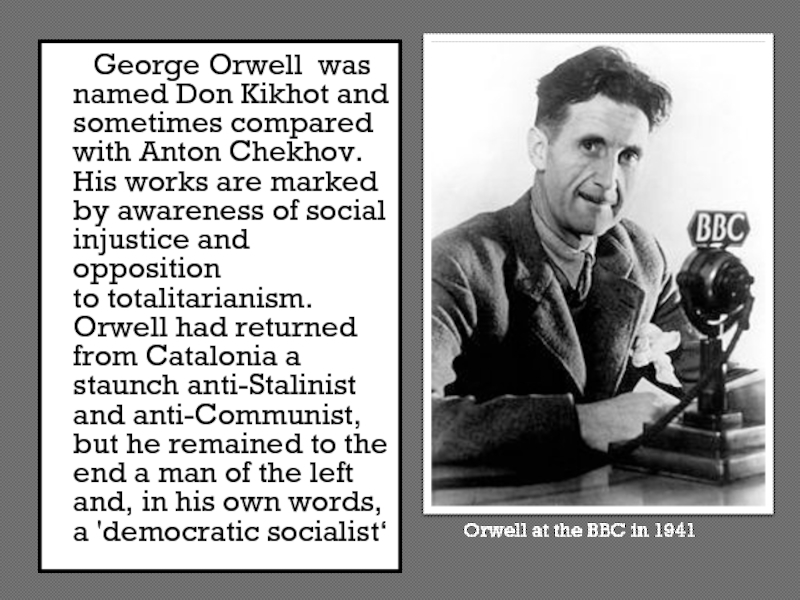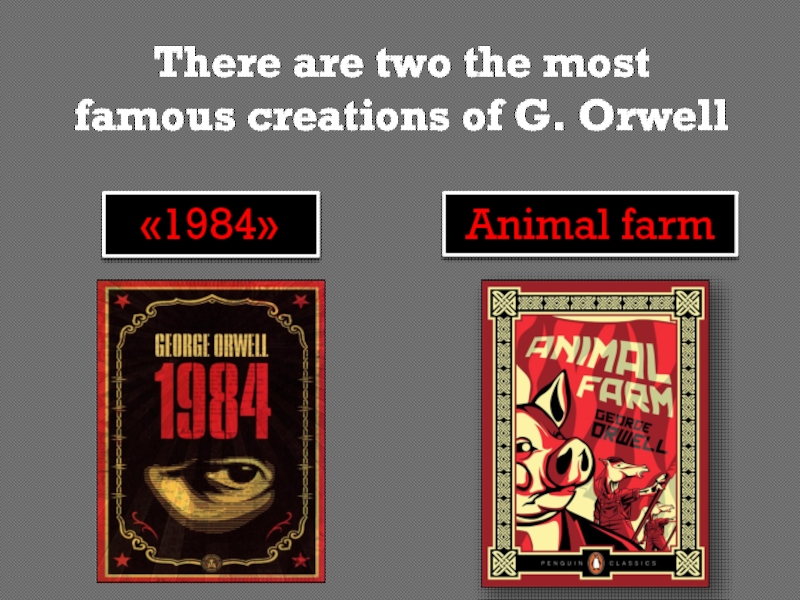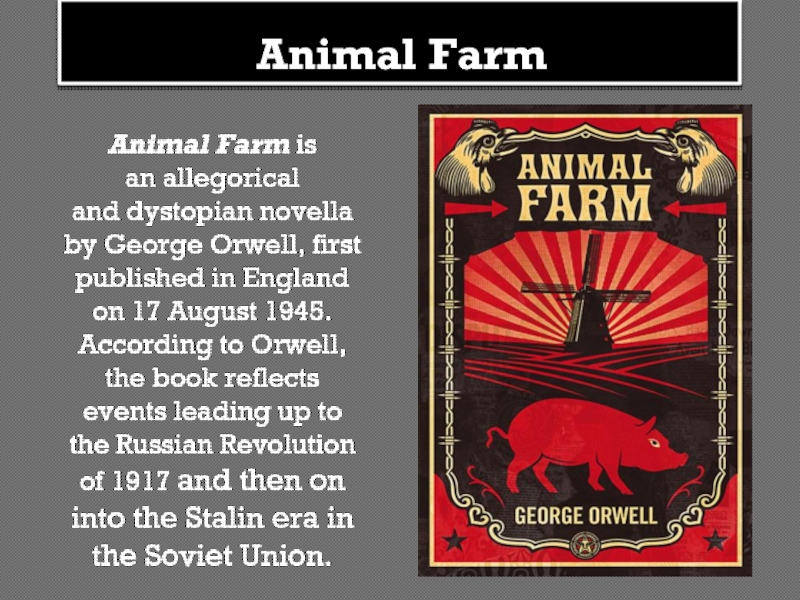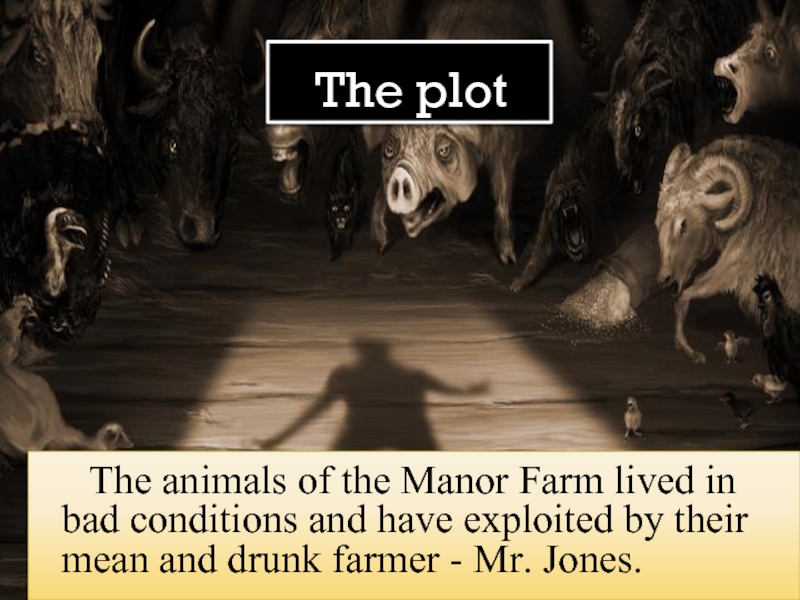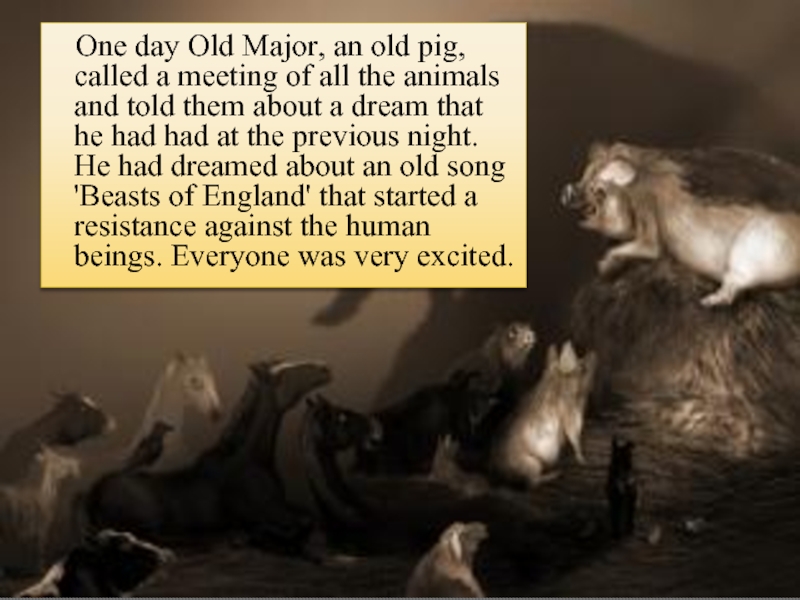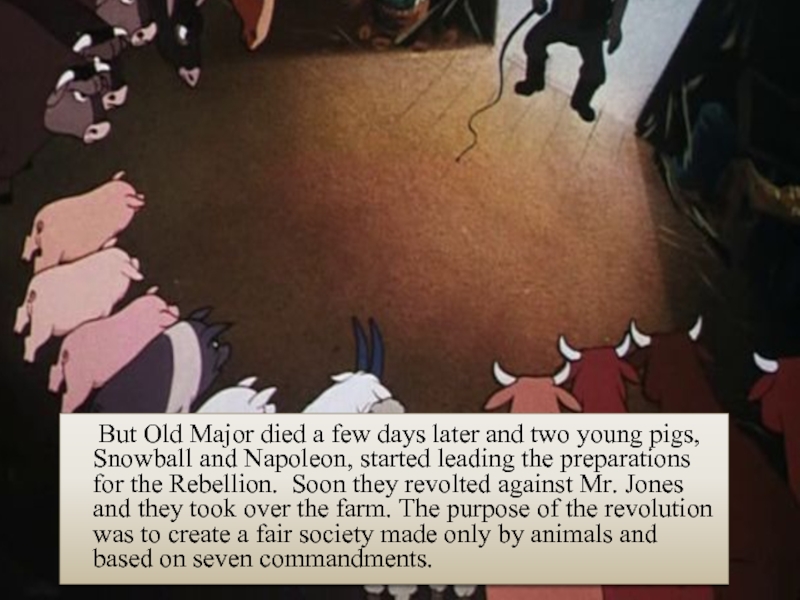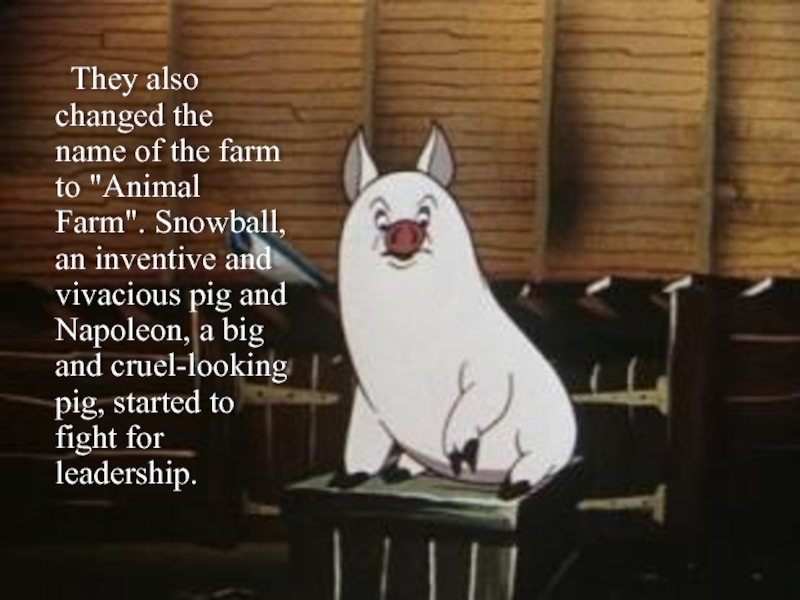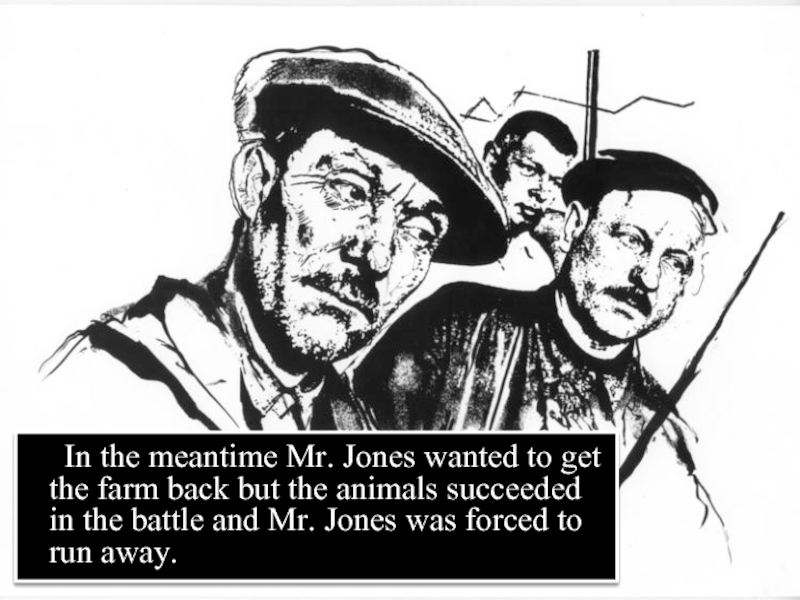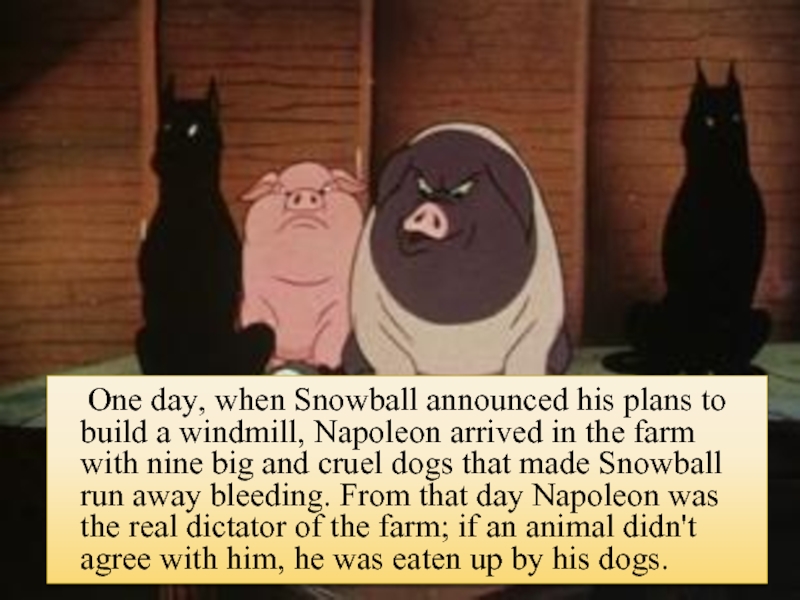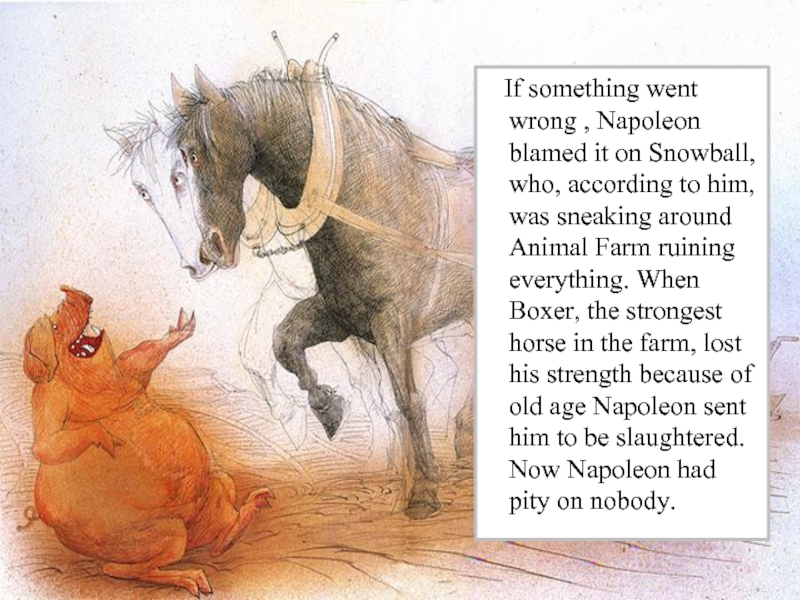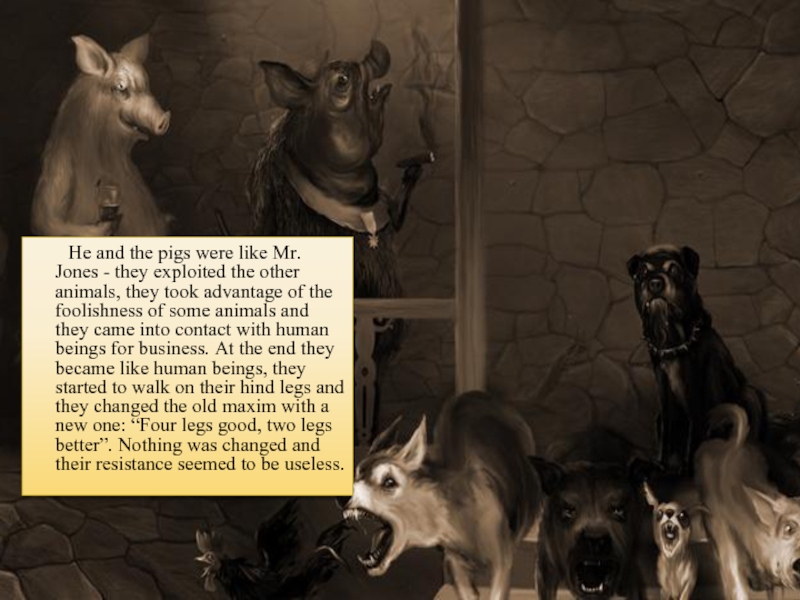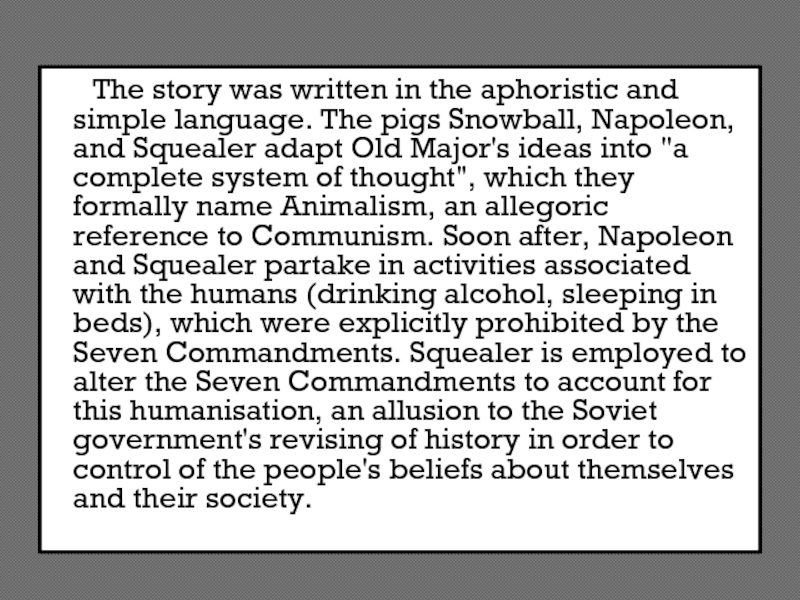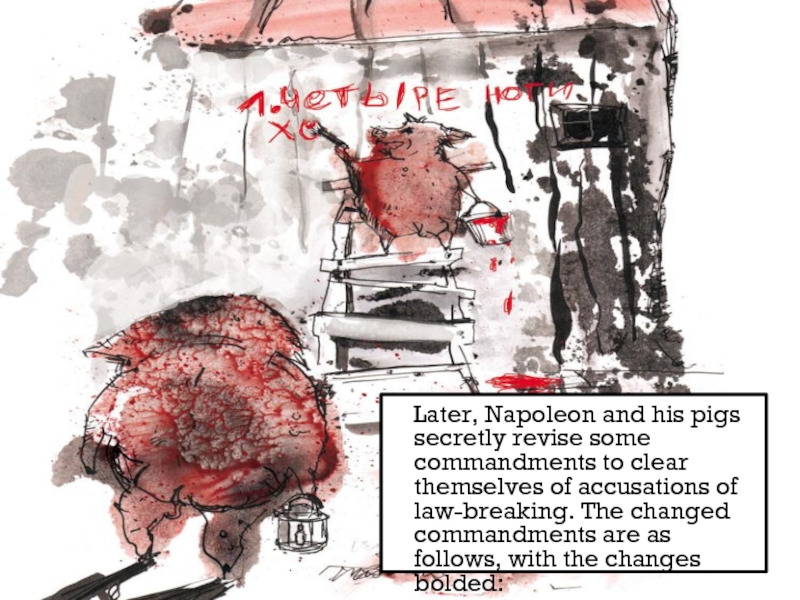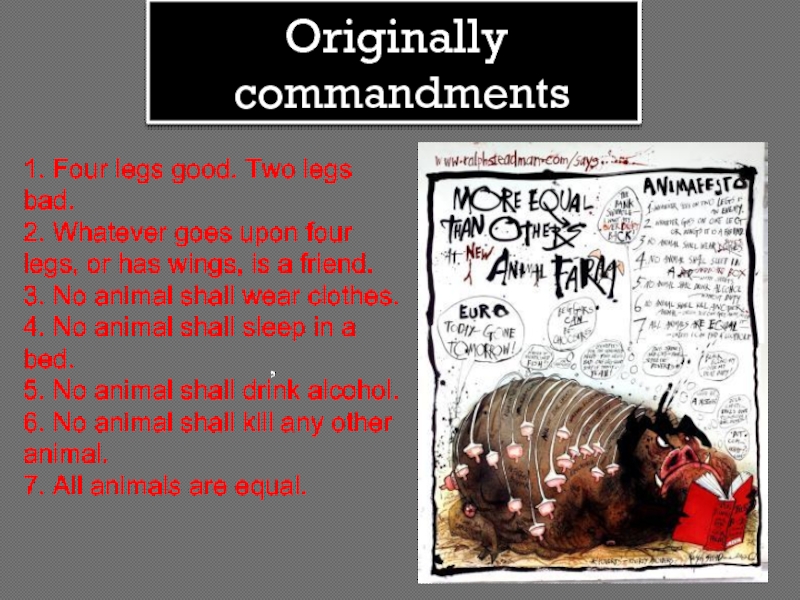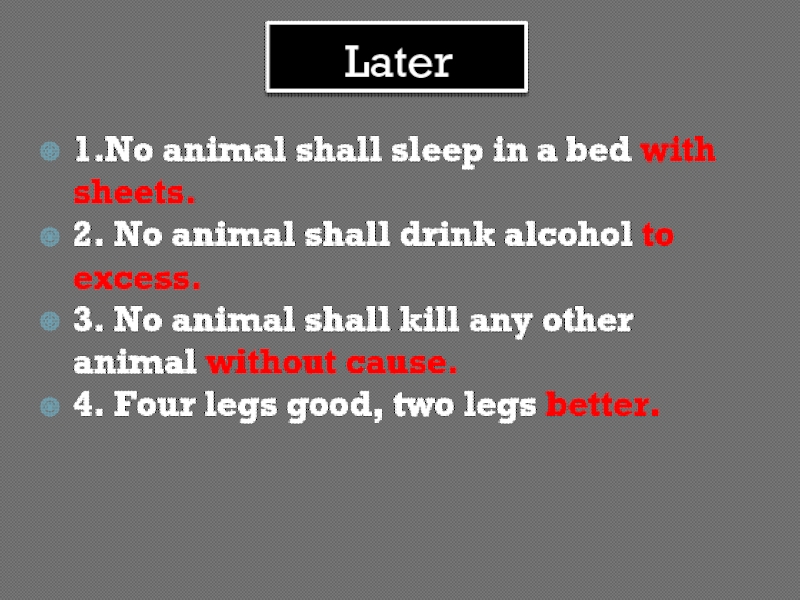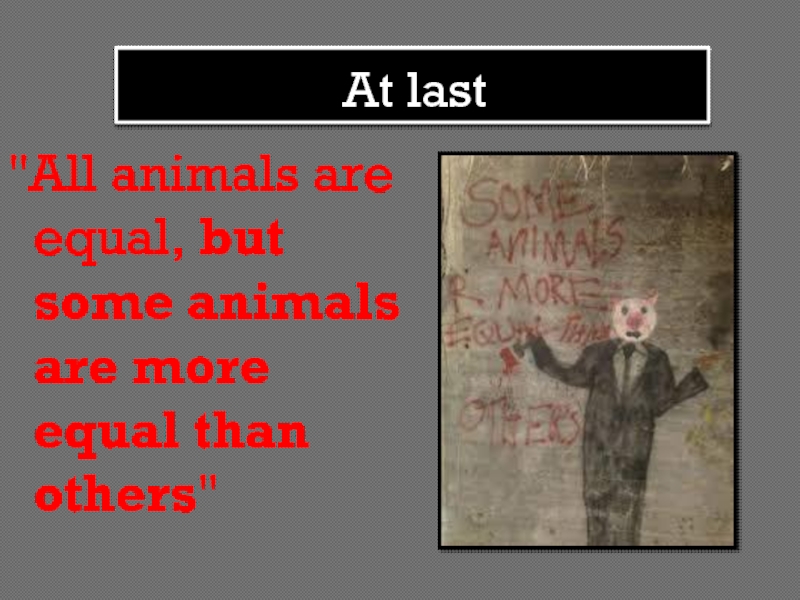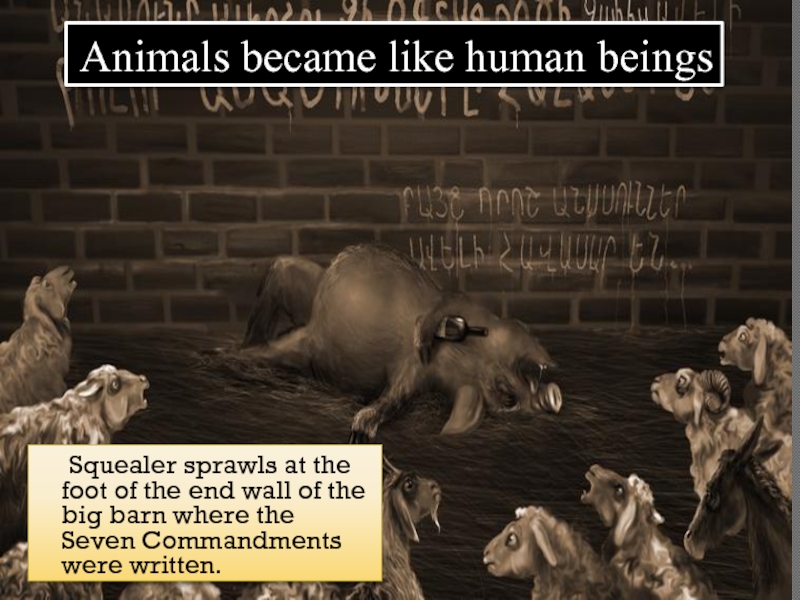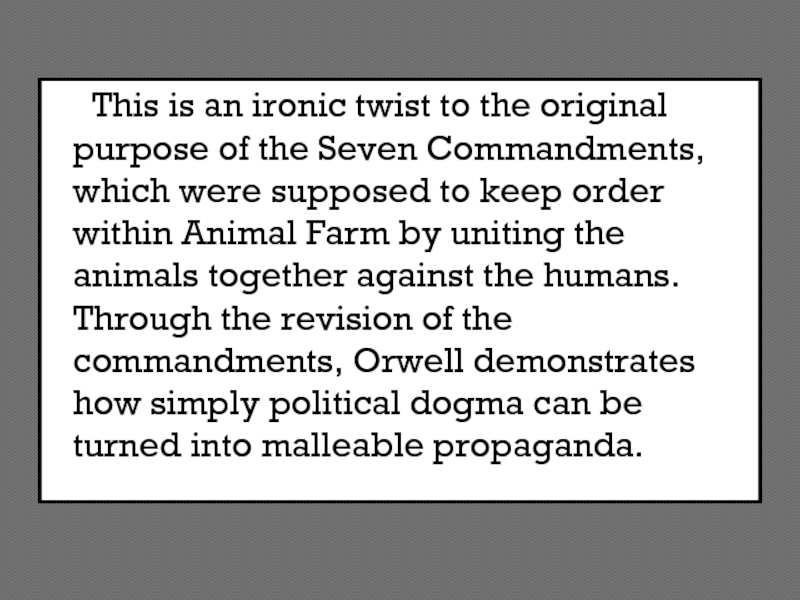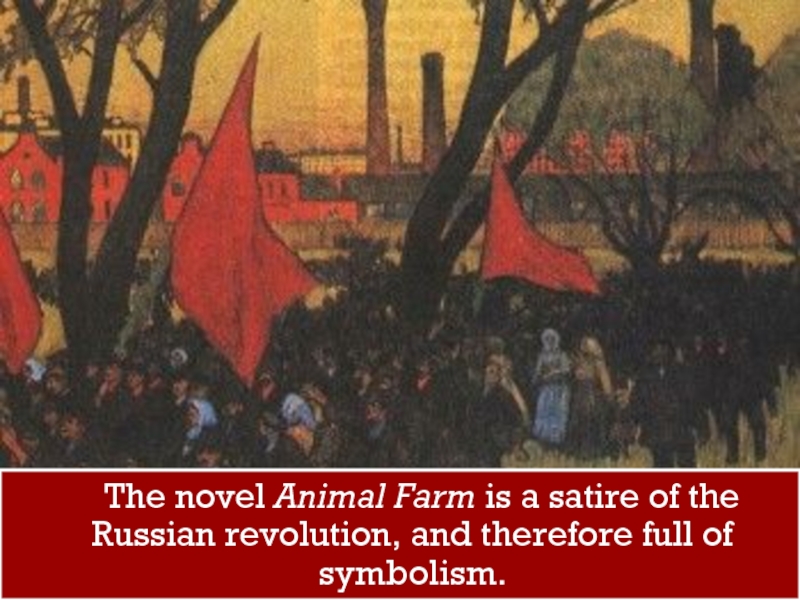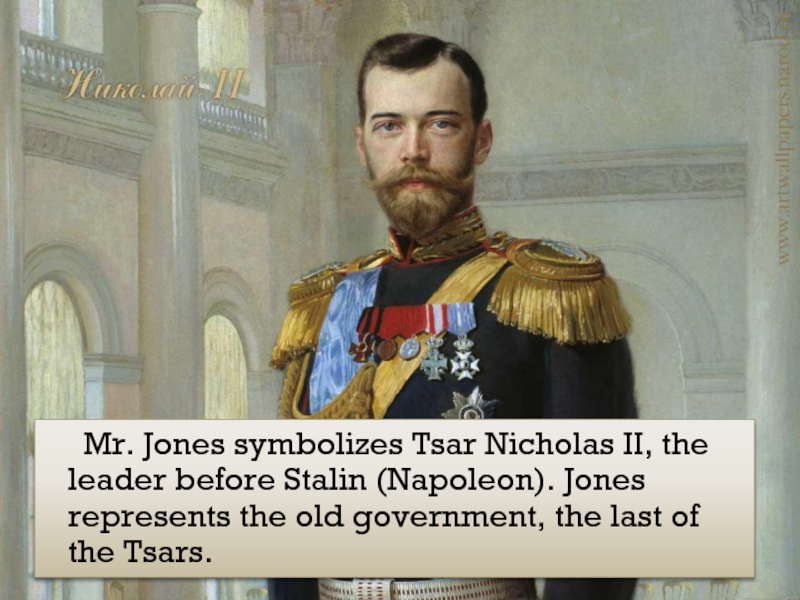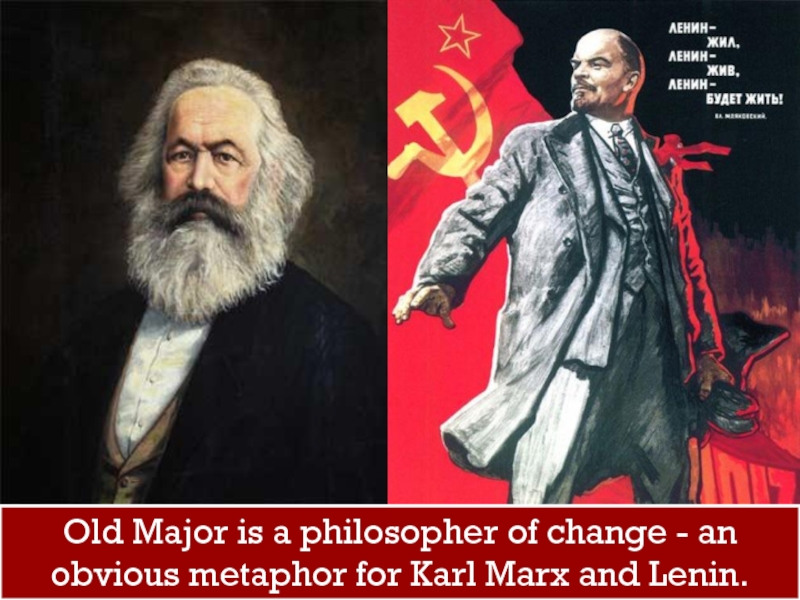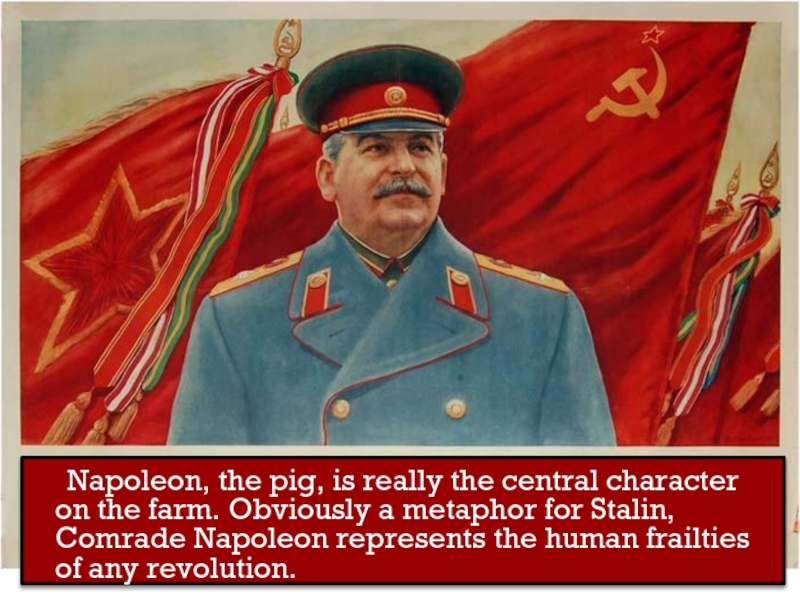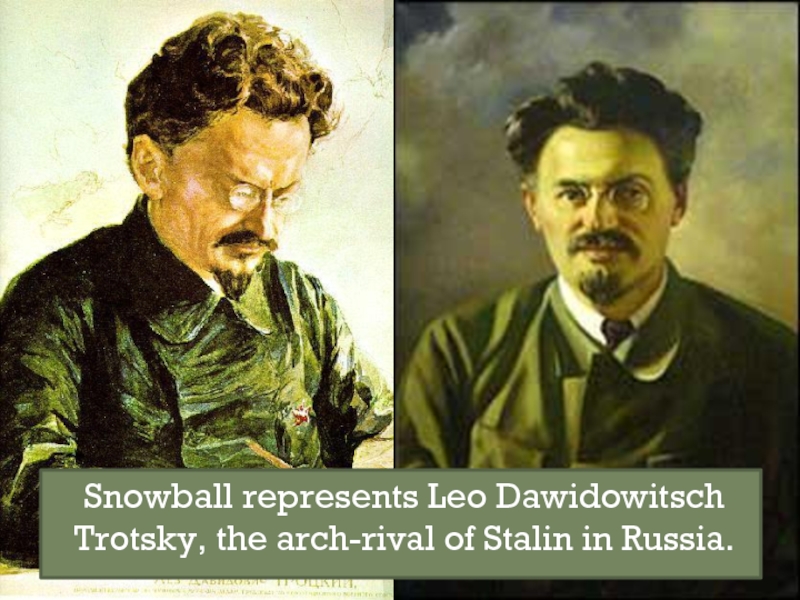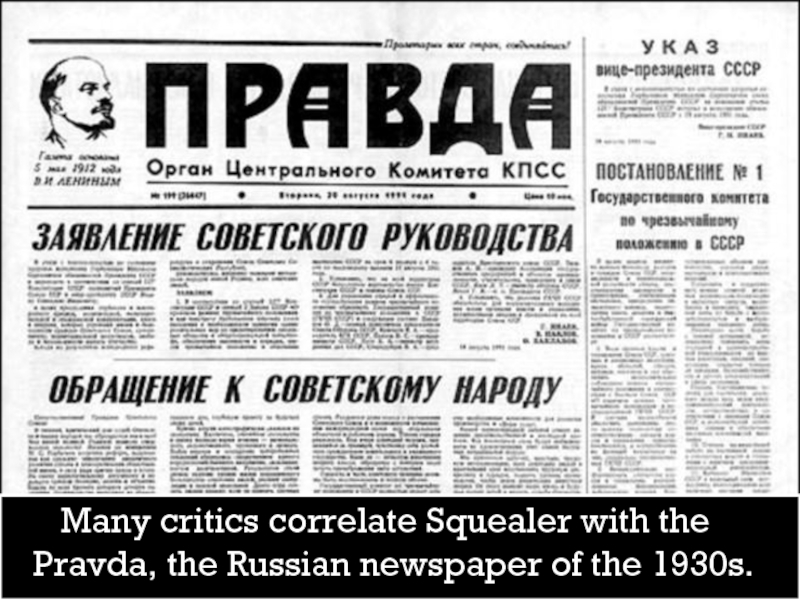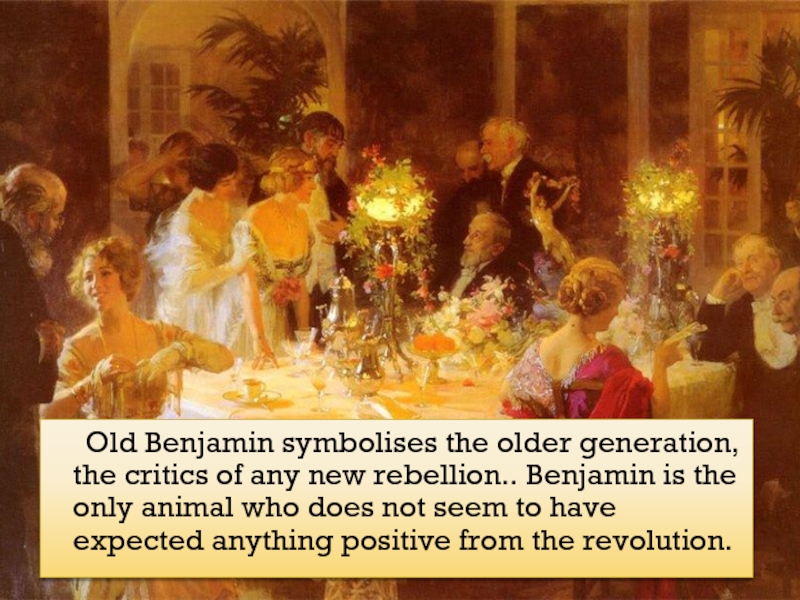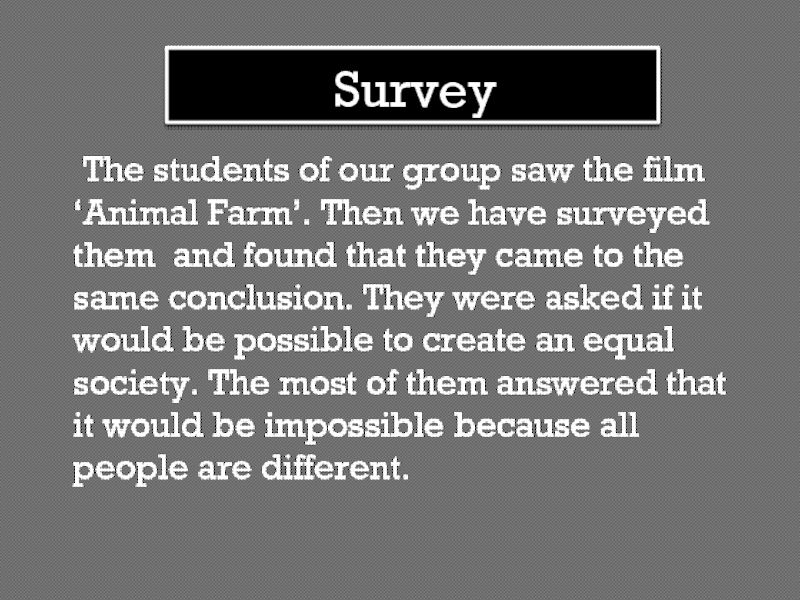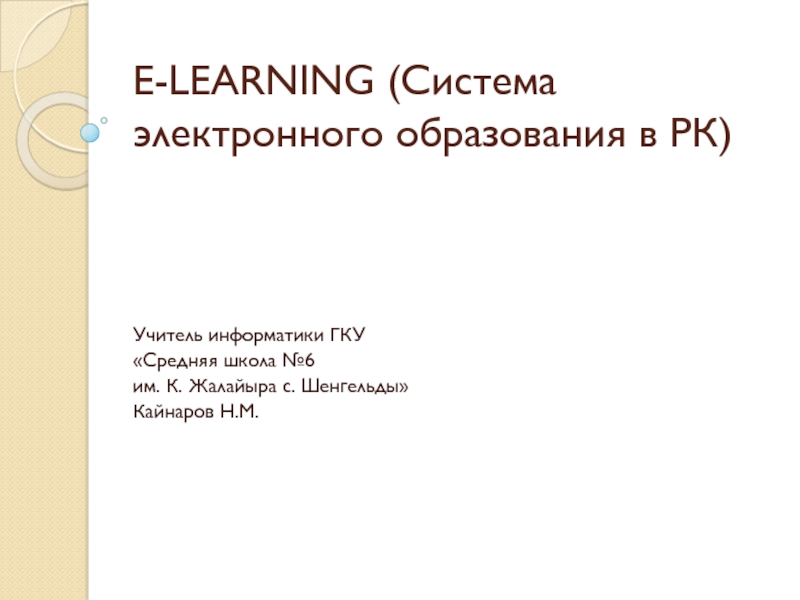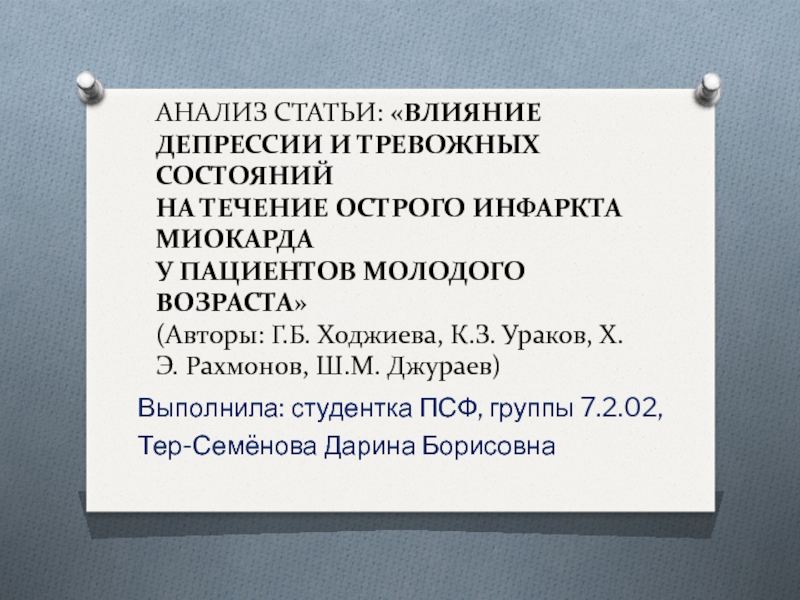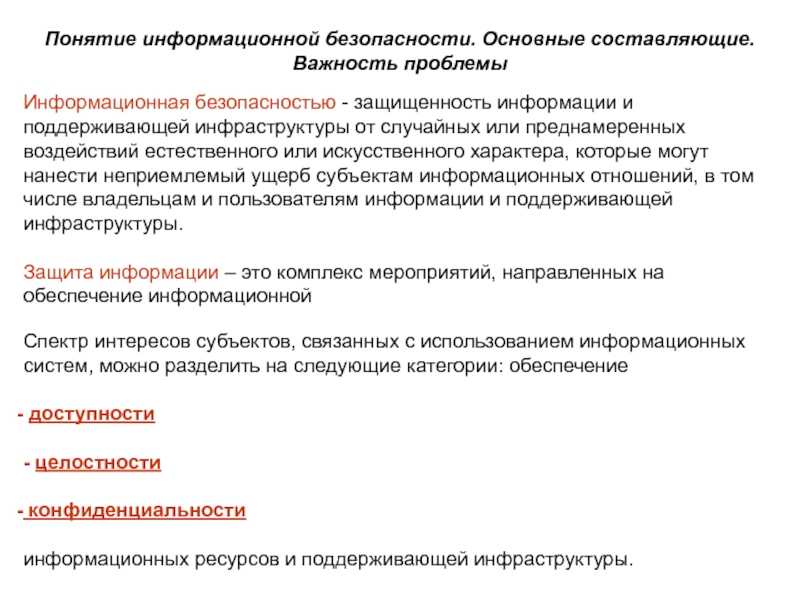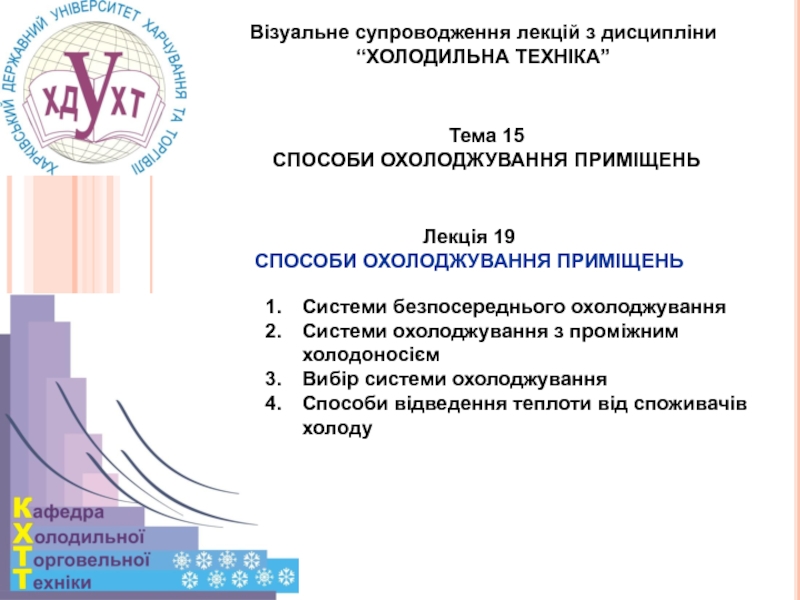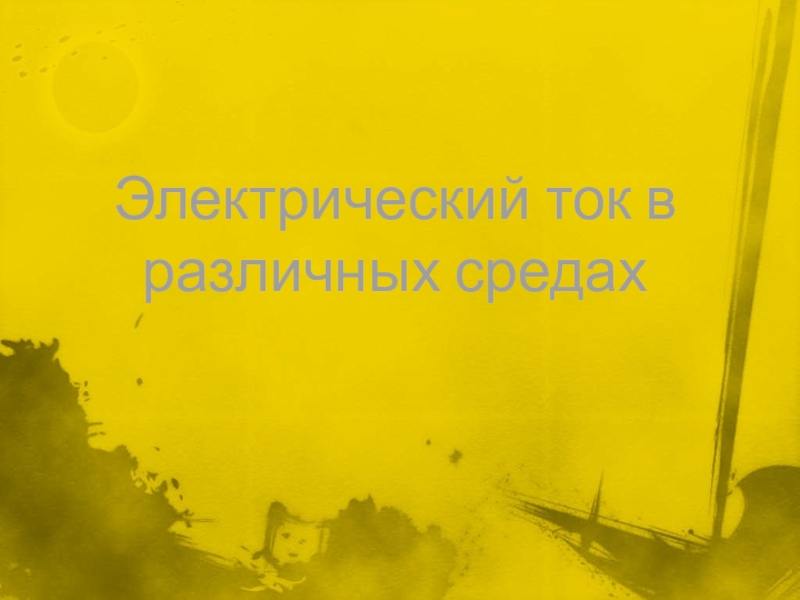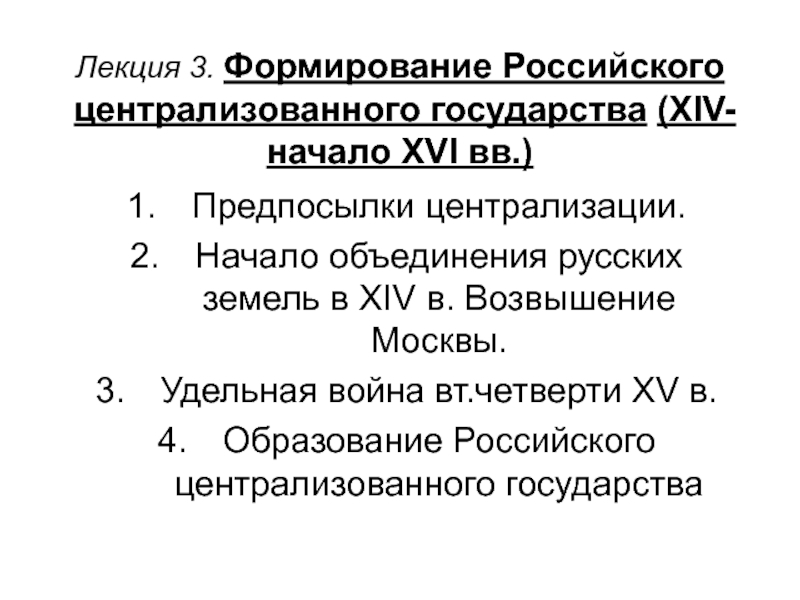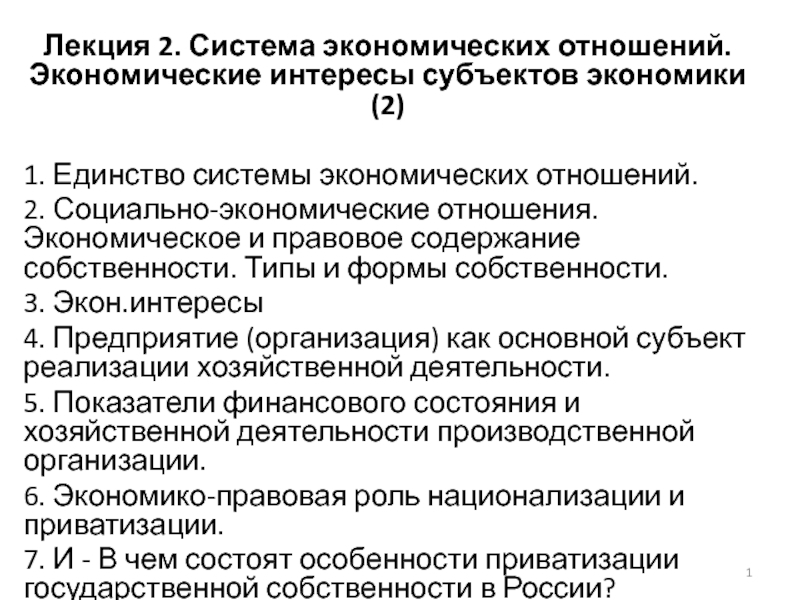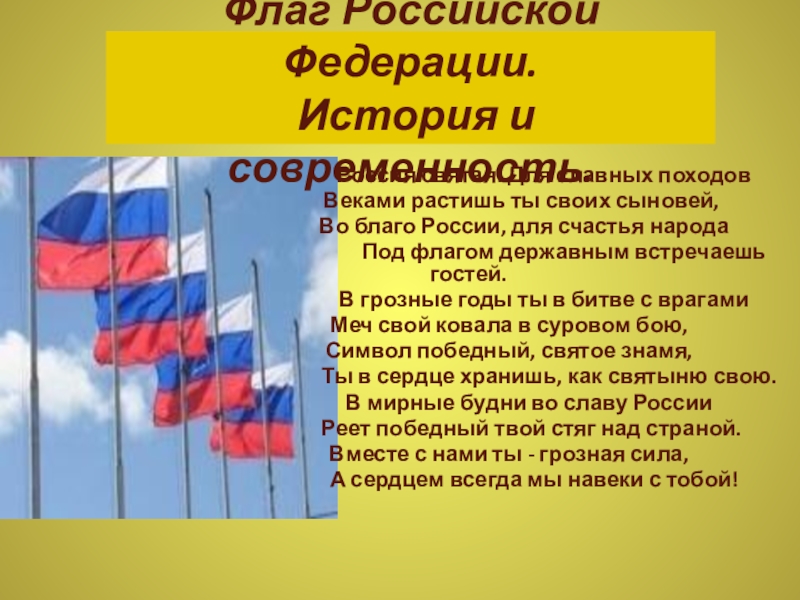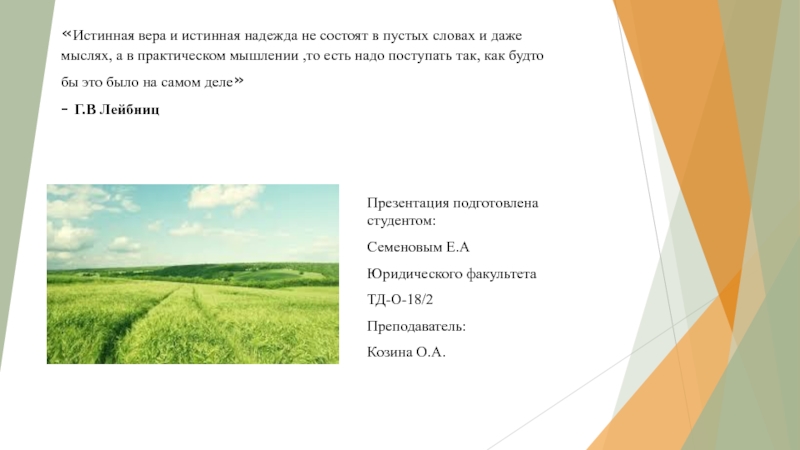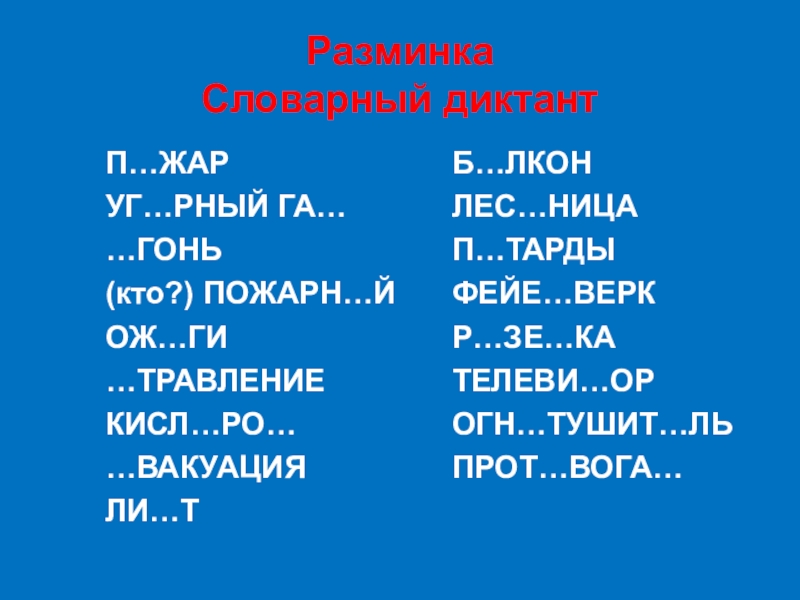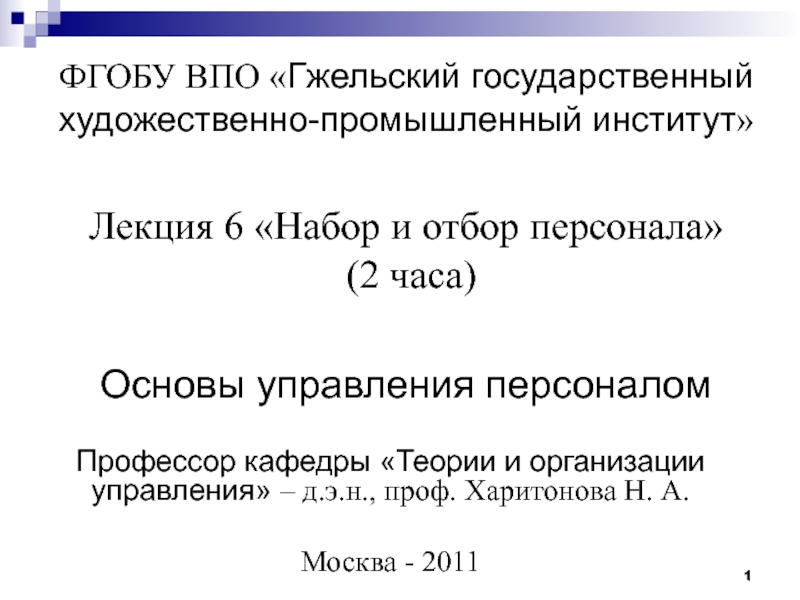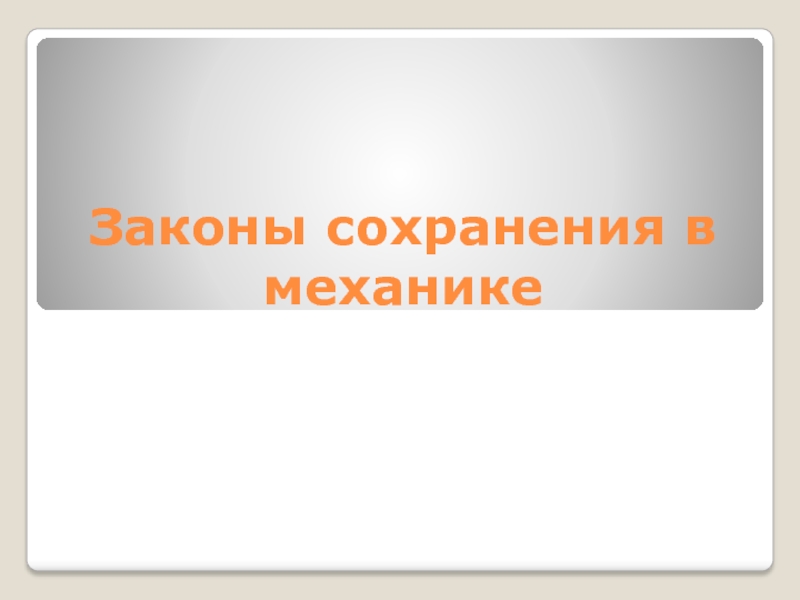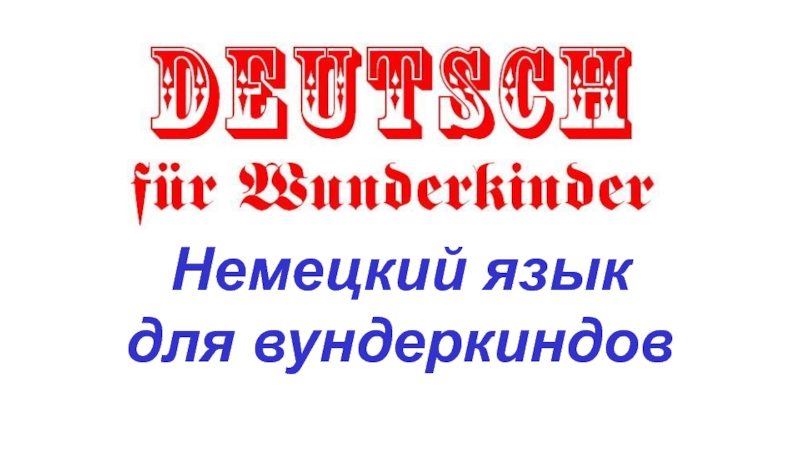Слайд 2Eric Arthur Blair (25 June 1903 – 21 January 1950),who used the pen
name George Orwell, was an English novelist and journalist. He took
part in the Spanish Civil War (1936-1939)
During the Second World War he was a presenter of the anti-fascist program on BBC.
He is best known for the dystopian novel ’Nineteen Eighty-Four’ (1949) and the allegorical novella ’Animal Farm’ (1945).
.
Слайд 3 George Orwell was named Don Kikhot and
sometimes compared with Anton Chekhov. His works are marked by
awareness of social injustice and opposition to totalitarianism. Orwell had returned from Catalonia a staunch anti-Stalinist and anti-Communist, but he remained to the end a man of the left and, in his own words, a 'democratic socialist‘
Orwell at the BBC in 1941
Слайд 4There are two the most famous creations of G. Orwell
«1984»
Animal farm
Слайд 5Animal Farm
Animal Farm is an allegorical and dystopian novella by George Orwell, first published in
England on 17 August 1945. According to Orwell, the book
reflects events leading up to the Russian Revolution of 1917 and then on into the Stalin era in the Soviet Union.
Слайд 6The plot
The animals of the Manor
Farm lived in bad conditions and have exploited by their
mean and drunk farmer - Mr. Jones.
Слайд 7 One day Old Major, an old pig, called a
meeting of all the animals and told them about a
dream that he had had at the previous night. He had dreamed about an old song 'Beasts of England' that started a resistance against the human beings. Everyone was very excited.
Слайд 8 But Old Major died a few days
later and two young pigs, Snowball and Napoleon, started leading
the preparations for the Rebellion. Soon they revolted against Mr. Jones and they took over the farm. The purpose of the revolution was to create a fair society made only by animals and based on seven commandments.
Слайд 9 They also changed the name of the
farm to "Animal Farm". Snowball, an inventive and vivacious pig
and Napoleon, a big and cruel-looking pig, started to fight for leadership.
Слайд 10 In the meantime Mr. Jones wanted to
get the farm back but the animals succeeded in the
battle and Mr. Jones was forced to run away.
Слайд 11 One day, when Snowball announced his plans to
build a windmill, Napoleon arrived in the farm with nine big
and cruel dogs that made Snowball run away bleeding. From that day Napoleon was the real dictator of the farm; if an animal didn't agree with him, he was eaten up by his dogs.
Слайд 12 If something went wrong , Napoleon blamed it
on Snowball, who, according to him, was sneaking around Animal
Farm ruining everything. When Boxer, the strongest horse in the farm, lost his strength because of old age Napoleon sent him to be slaughtered. Now Napoleon had pity on nobody.
Слайд 13 He and the pigs were like
Mr. Jones - they exploited the other animals, they took
advantage of the foolishness of some animals and they came into contact with human beings for business. At the end they became like human beings, they started to walk on their hind legs and they changed the old maxim with a new one: “Four legs good, two legs better”. Nothing was changed and their resistance seemed to be useless.
Слайд 14 The story was written in the aphoristic
and simple language. The pigs Snowball, Napoleon, and Squealer adapt
Old Major's ideas into "a complete system of thought", which they formally name Animalism, an allegoric reference to Communism. Soon after, Napoleon and Squealer partake in activities associated with the humans (drinking alcohol, sleeping in beds), which were explicitly prohibited by the Seven Commandments. Squealer is employed to alter the Seven Commandments to account for this humanisation, an allusion to the Soviet government's revising of history in order to control of the people's beliefs about themselves and their society.
Слайд 15 Later, Napoleon and his pigs secretly revise some
commandments to clear themselves of accusations of law-breaking. The changed
commandments are as follows, with the changes bolded:
Слайд 16Originally
commandments
’
1. Four legs good. Two legs bad.
2. Whatever
goes upon four legs, or has wings, is a friend.
3.
No animal shall wear clothes.
4. No animal shall sleep in a bed.
5. No animal shall drink alcohol.
6. No animal shall kill any other animal.
7. All animals are equal.
Слайд 17Later
1.No animal shall sleep in a bed with sheets.
2. No animal
shall drink alcohol to excess.
3. No animal shall kill any other
animal without cause.
4. Four legs good, two legs better.
Слайд 18At last
"All animals are equal, but some animals are more
equal than others"
Слайд 19Animals became like human beings
Squealer sprawls at
the foot of the end wall of the big barn
where the Seven Commandments were written.
Слайд 20 This is an ironic twist to the original purpose
of the Seven Commandments, which were supposed to keep order
within Animal Farm by uniting the animals together against the humans. Through the revision of the commandments, Orwell demonstrates how simply political dogma can be turned into malleable propaganda.
Слайд 21 The novel Animal Farm is a satire of the
Russian revolution, and therefore full of symbolism.
Слайд 22 Mr. Jones symbolizes Tsar Nicholas II, the
leader before Stalin (Napoleon). Jones represents the old government, the
last of the Tsars.
Слайд 23Old Major is a philosopher of change - an obvious
metaphor for Karl Marx and Lenin.
Слайд 24 Napoleon, the pig, is really the central
character on the farm. Obviously a metaphor for Stalin, Comrade
Napoleon represents the human frailties of any revolution.
Слайд 25 Snowball represents Leo Dawidowitsch Trotsky, the arch-rival of
Stalin in Russia.
Слайд 26 Many critics correlate Squealer with the Pravda,
the Russian newspaper of the 1930s.
Слайд 27 Old Benjamin symbolises the older generation, the
critics of any new rebellion.. Benjamin is the only animal
who does not seem to have expected anything positive from the revolution.
Слайд 28Survey
The students of our group saw the film
‘Animal Farm’. Then we have surveyed them and found that
they came to the same conclusion. They were asked if it would be possible to create an equal society. The most of them answered that it would be impossible because all people are different.
